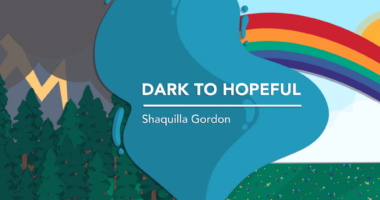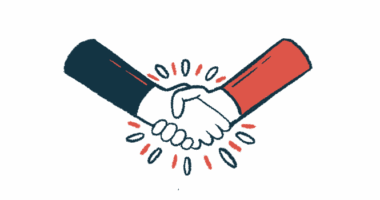How my PNH diagnosis affected my mental health
Nothing could've prepared me for the emotional toll this disease would take

When I was diagnosed with paroxysmal nocturnal hemoglobinuria (PNH) in May 2017, I thought the biggest battle I would face was the physical one. I was wrong.
While the fatigue, blood clots, and pain were undeniably difficult, nothing could’ve prepared me for the mental and emotional toll this rare disease would take. In many ways, the mental struggle felt even heavier than the physical symptoms. For a long time, I felt like I was drowning in fear and uncertainty.
At first, my diagnosis didn’t seem real. I’d gone from being a busy mother and full-time professional to someone whose body constantly betrayed her. Simple things like walking up the stairs, playing with my children, and even getting through a full day of work became monumental challenges. I felt trapped in a body that was failing me, and no matter how much I wanted to push through, the exhaustion and pain won every time.
The isolation crept in slowly. PNH is rare, and I didn’t know anyone else who had it. I struggled to explain to family and friends why I was always so tired or had to cancel plans at the last minute. I felt like a burden, like I was letting everyone down. The anxiety of what my future would look like and how this disease would progress consumed me. Some nights, I lay awake staring at the ceiling, overwhelmed by thoughts of whether I’d be around to see my children grow up.
Depression followed soon after. I withdrew from people because I didn’t want to be the person who always had bad news. It was easier to say “I’m fine” than to explain the complicated reality of living with PNH. But the more I shut people out, the worse I felt. It took time, therapy, and leaning on my support system to realize that I wasn’t alone. My family, friends, and the incredible PNH community reminded me that my worth wasn’t defined by my illness.
I’ve since come to a place of acceptance. I still have hard days, but I’ve learned to prioritize my mental health as much as my physical health.
If you or someone you love is struggling with the emotional impact of chronic illness, know that support is out there. Resources like the National Alliance on Mental Illness and the PNH Global Alliance can provide the help you need. Living with PNH isn’t easy, but with the right mindset and support, it’s possible to find strength during the storm and discover different ways to better your mental health.
Note: PNH News is strictly a news and information website about the disease. It does not provide medical advice, diagnosis, or treatment. This content is not intended to be a substitute for professional medical advice, diagnosis, or treatment. Always seek the advice of your physician or other qualified health provider with any questions you may have regarding a medical condition. Never disregard professional medical advice or delay in seeking it because of something you have read on this website. The opinions expressed in this column are not those of PNH News or its parent company, Bionews, and are intended to spark discussion about issues pertaining to paroxysmal nocturnal hemoglobinuria.








Grace Frank
Hello Shaquille. Thank you for talking so openly and helpfully on such a personal and difficult topic like depression. I enjoyed reading your column very much, and the thoughts you expressed throughout it. Wish you all the best.
Shaquilla Gordon
Mental health plays a huge part in the struggles of PNH and I wanted our community to know you're not alone. Thank you so much!